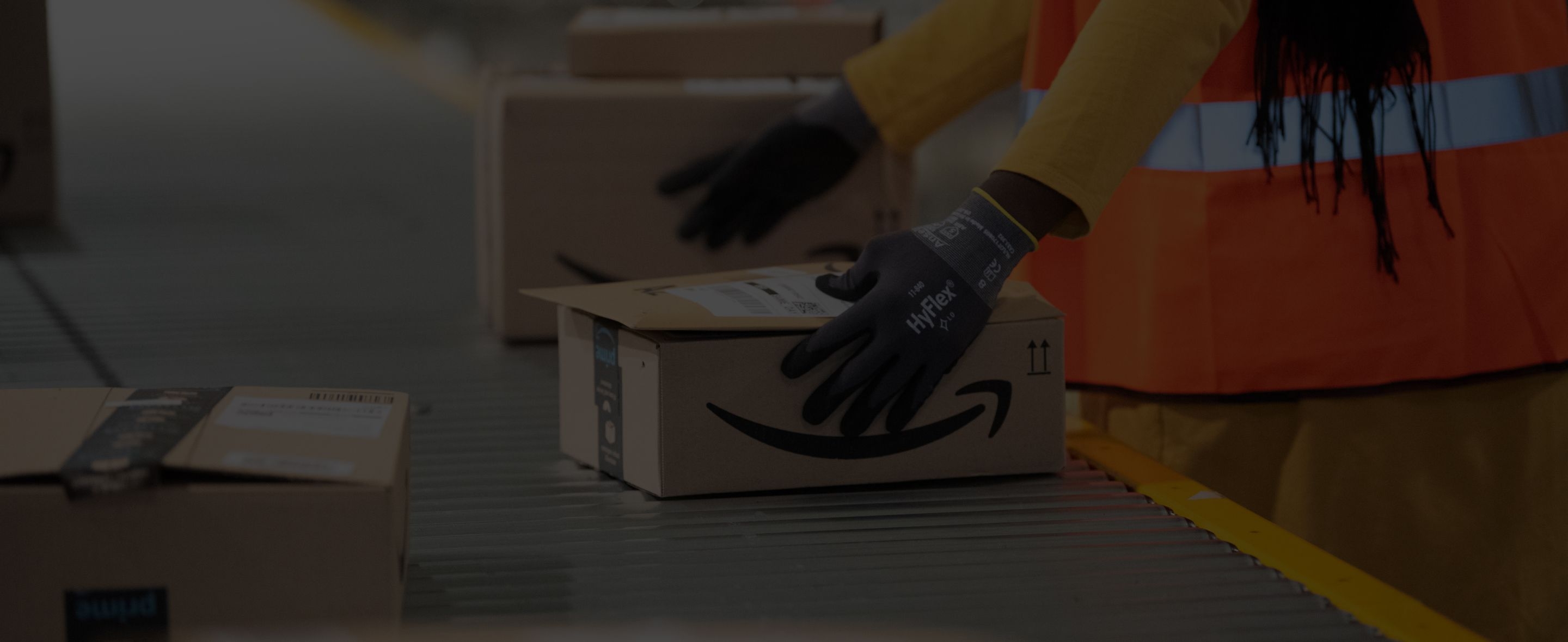
Fulfillment by Amazon (FBA) vs direct fulfillment



If you’ve ever purchased anything on Amazon, you may have at some point chosen its same-day or one-day delivery service, even if the item wasn’t sold by Amazon. After all, as the world’s largest retailer, Amazon prides itself on not only the variety of products on its site but also, its speedy delivery.
But have you ever thought about what goes on behind the scenes when a purchase is made on Amazon? According to Statista, Amazon’s main source of revenues is its online sales of electronics and other products. This is followed by third party seller revenues.
Third party sellers on Amazon
The world’s largest retailer has over two million third party sellers registered on its online platform. In fact, it’s estimated that more than 47% of items shipped by Amazon are sold by third party sellers.
In 2016, third party sellers on Amazon generated $22.99 billion in revenues — making up the second-largest source of Amazon’s revenues. This represents a massive 42.9% leap from the $16.09 billion made the previous year. Needless to say, with a recovering economy, this number is more than likely to rise again in 2017.
There’s been a growing number of businesses building and growing their wealth on Amazon. And in trade and business, whether you like it or not, there’s always one very important aspect to deal with: logistics.
Fulfillment by Amazon or direct fulfillment
Given the advantages, it should come as no surprise that most third party sellers on Amazon use its Fulfillment by Amazon service. With FBA, sellers’ products are eligible for Amazon’s Prime and Super Saver Shipping. They can also take advantage of Amazon’s customer service experience, and this all translates to obtaining more sales when competing non-FBA sellers.
However, not everything that shines is gold. Amazon’s FBA has its disadvantages too, and many sellers often opt to handle this part of the logistics themselves. In other words, direct fulfillment.
If you’re a third party seller opting for direct fulfillment, you may want to hire an external service to help you manage the logistical part of it. Fulfillment, direct or otherwise, has become increasingly popular and advanced as requirements have risen over the past decade. Technology is obviously a big help in terms of managing the whole process and keeping track of individual shipments as well as the inventory in the warehouse. For most people, the dream now is to get to a level of Amazon Prime for example where you know when you book that the cargo arrives at your door on a given date. And that it actually delivers on that date.
But what are the differences between FBA and direct fulfillment, how do these affect logistics — be it ocean freight or air freight — and how are these changing given the speed at which technology is taking over the sector?
To answer these questions, let us present Julian Rubio, President of Ameriworld Fulfillment Services. Ameriworld is a third party distribution center based in Miami. They assist local and foreign companies establish their own operation in the United States for the direct sale, fulfillment and distribution of their products.
Video transcript:
1. What are the main differences between Fulfillment by Amazon (FBA) and direct fulfillment?
Without any doubt, Amazon is the world leader in e-commerce. It is a great platform for companies to deliver products to end users in a very timely manner and with great free freight programs such as Amazon Prime.
However, companies selling to a variety of distribution channels need to use the services of logistic companies that can prepare and ship orders not only for end users, but also for retail stores, department stores, distributors, and drop-shipments for third party resellers.
In majority of the cases, sellers have their goods with a fulfillment center such as Ameriworld, and what they decide to sell via Amazon FBA is sent out to them – the rest is distributed via other channels and warehoused to restock clients.
2. How can a US importer benefit by outsourcing his fulfillment to a specialist? What must he look out for?
When deciding if you should have your own operation vs a third party that specializes in fulfillment, you need to take into consideration not only the cost of having a warehouse, finding efficient staff and retaining them, but also the technology and know-how needed in order to comply with very strict guidelines that if not met, will result in stiff chargebacks and retailers dropping your product line.
If you decide to take on a logistics partner to fulfill your orders, keep the following checklist handy:
- Is their warehouse close to your products’ port of entry?
- Do they specialize in online product fulfillment or is their core something else in the logistics arena such as freight forwarding, logistics transport, brokers, etc.
- Do they have the technology in place to comply with your clients’ request? (barcoded warehouse, EDI, returns processing and reconditioning, etc).
- Can they provide you with one of their client companies similar to yours as a reference?
- Can they meet the delivery times and product labeling requirements?
- Will they be able to accommodate your future growth?
- Most importantly, do you understand their price structure and can you forecast your monthly bill from them?
3. How are e-commerce logistics and the rise of digitalization changing the process of fulfillment?
We’ve been in the business since before the digital era so we’ve seen how retailers continue to increase their delivery requirements, passing on all the heavy lifting and complications to the sellers (or in our case, to the third party that runs the sellers’ operation).
Not too long ago, we would receive an order from a Big Box Retailer of let’s say 700 items and we would have to pick and ship them to one of their warehouses and they would take it from there. Now, an order like this would go to 30 different stores. And we would have to send them the contents and dimensions of each box once they were picked, so they can send us the labels they want us to use, and we would have to be separating each order by store, labeling the correct boxes and shipping them 30 different ways.
If you don’t have the technology in place to speed up the process, it could take you a long time to prepare this order. The ability to efficiently prepare orders in a timely manner is what defines your clients’ success in the digital era of logistics, considering the expensive penalties web platforms charge for late deliveries – which could exceed your product retail price.
4. How can freight forwarders get involved in order to provide a more complete solution?
The coordination of the complete transportation process from pick up at origin all the way to the delivery at the fulfillment warehouse once the shipment has been cleared from customs is very important from the freight forwarder’s side. Delays in this process may be cause for lost sales opportunities or penalties for not being able to fulfill orders in a timely fashion.
5. What are some of the biggest challenges logistics wise during the busy holiday shopping season (Black Friday, Thanksgiving, Christmas)? Would FBA or direct fulfillment be the better option for shippers?
The holiday season is the real test for everyone – sellers and logistics providers. Whatever your plan is, make sure you have it all figured out by October because you want new clients to become repetitive ones and in order to achieve this, you need to make them happy in this key season.
I would say the biggest challenge is the amount of orders you have to fulfill at once. This takes serious planning: from having stored enough products before the season kicks off to having enough trained staff to work to fulfill these orders within the strict time constraints imposed by retailers.
Big box retailers keep a close eye on every mistake fulfillment centers make and charge penalties for every missed or late delivery. These penalties and chargebacks sometimes are even higher than the retail value of the product. An unsatisfactory percentage of late or erroneous deliveries will translate into retailers dropping the suppliers in question.
In short, in order to succeed in the digital area, it’s really important, now than ever, that your logistical operation is well-run and professional to meet the needs of your clients.
Facing a busy #logistics season? Know the pros and cons of Fulfillment by #Amazon and direct fulfillment https://t.co/4NfdRYrzdK #shipping @Ameriworld pic.twitter.com/4bAtBJwhgG
— iContainers (@icontainers) January 3, 2018
Related Articles


